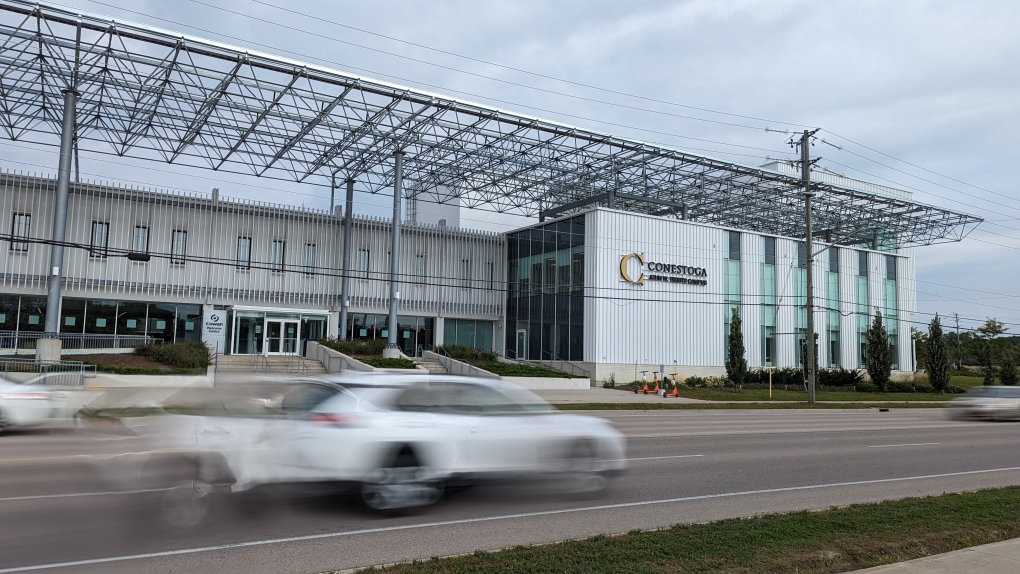
Immigration Minister Marc Miller had some strong words for Conestoga College at a recent online forum hosted by Toronto Metropolitan University.
Miller was asked about whether Ontario colleges and universities had developed an unhealthy reliance on international students – who are charged up to five times more in tuitions fees than domestic students.
Miller acknowledged the current system has incentivized institutions to use international students to balance their finances. Then he took aim at one school in particular.
“There is at least one institution in Ontario that had a $100 million positive balance at the end of the year and that, in my mind, isn’t the vocation of a college or university,” he said.
Conestoga reported a $106 million year-end surplus in its most recent annual report.
Miller said he wouldn’t “deny anyone the right to get profit.”
“But you’re doing it on a bunch of people who have sometimes had their family earnings pooled into one person, their hopes and dreams into one person… and have it dashed quickly when they can’t get a job or get a crappy education and then have to file for asylum in some of the worst-case scenarios,” he continued.
International student enrollment at Conestoga College has grown by 1,579 per cent in the past seven years, jumping from just 763 international students in 2014-2015 to 12,808 in 2021-2022, according to a recent report by Ontario’s Big City Mayors.
During the same time period, international student enrollment increased 62 per cent at the University of Waterloo and 66 per cent at Wilfrid Laurier University.
Miller’s comments come as his government places a two-year cap on foreign enrollment that will reduce the number of new international student permits by 35 per cent in 2024. Some provinces, like Ontario, could see reductions of more than 50 per cent.
The federal government has also doubled the amount of money prospective international students need to show they have access to in order to obtain a study permit.
Miller comments on anti-immigrant sentiment in K-W
Miller was also asked to comment on the “increased anti-immigration sentiment, bordering on racism, that is now more evident in the Kitchener-Waterloo area because of the high international student population, specifically from India.”
“I can’t really blame people for feeling that way. There’s no housing and no jobs but it seems people are lashing out against or voicing their dissent against a group of people instead of the government. It’s not a very reassuring feeling as a brown person to know that in times of crisis, the immediate reaction is more ethnocentric in nature,” the audience member said.
Miller answered: “In tough times, the first people to pay for hardship have often been the most vulnerable and that includes people that are less wealthy, or racialized folks. That’s just reality that’s consistent throughout time. In this particular instance, we’ve seen in the Kitchener-Waterloo area, a significant increase in international students.”
Miller said he doesn’t fault people for wanting a better life, a job, or an education.
“But it has to be done in a way that is regulated and reasonable,” he continued. “And I think there have been large increases in the population there with a corresponding large increase in the cost of living. It’s unfortunate that people then turn their gaze onto people that don’t look like them. But that is often, sadly, the reality of human nature.”
“I think that we can do better. And I think we will do better once we have a system, when it comes to international students, that is something that is more controlled, and where the institutions themselves have more responsibility in making sure that those people are properly integrated into their surrounding neighbourhoods.”
Conestoga responds
CTV News requested an interview with Conestoga College President John Tibbits, but was told he was not available.
In an emailed statement, the college said boosting its international student enrollment has always aligned with the federal government’s immigration strategy.
“International students are catalysts for innovation and entrepreneurship in the province and Conestoga is proud to provide these future leaders with the skills and knowledge they need to succeed,” it continued, in part.
The college’s surpluses go back into the eight communities where its campuses are located in the form of campus expansion and renewal projects, student supports, and additional programming to meet workforce demands, it said.
